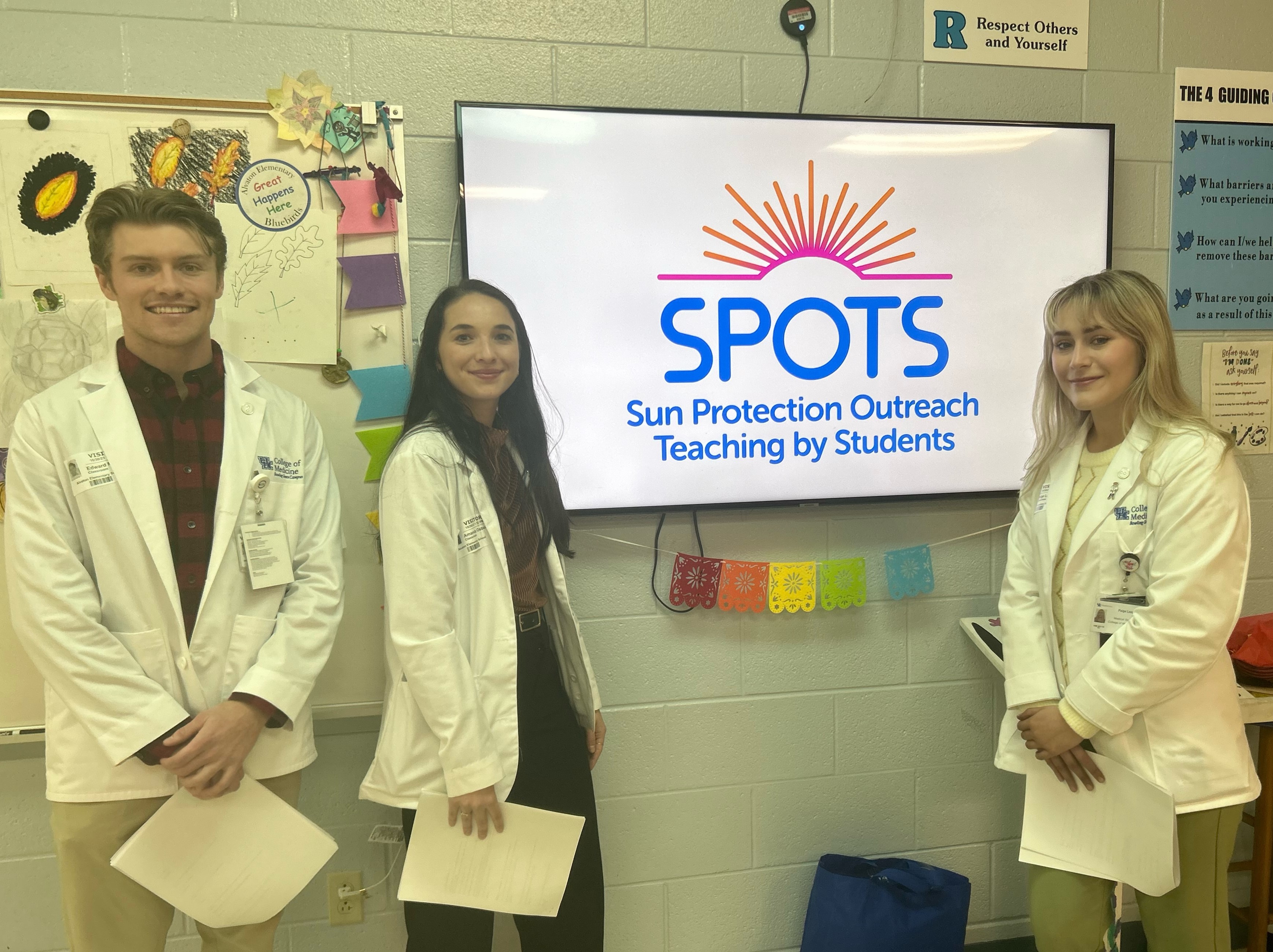This year, medical student ambassadors from the UK College of Medicine-Bowling Green Campus are visiting local elementary schools to participate in Sun Protection Outreach Training by Students (SPOTS).
SPOTS is a community outreach program designed to teach students about the importance of early detection and prevention of skin cancer. The program, which was recently recognized as a Top Project by the International Awards for Social Responsibility in Dermatology, began as a collaborative effort between St. Louis University and Washington University of St. Louis School of Medicine. Several medical schools around the country have since signed on to host lessons in their respective communities.
Alicia Fields, a second-year medical student, serves as chair of the admissions ambassadors for the Bowling Green Campus. This student-run organization is dedicated to promoting interest in medicine throughout Kentucky by interacting with prospective students and families. While researching outreach opportunities, Fields discovered the SPOTS program online and, after encouragement from Whitney Nipple, admissions coordinator, and Deanna Morris, PhD, assistant dean for students, successfully established a SPOTS Chapter at the UK College of Medicine.
“I felt this program would provide a unique opportunity to share the importance of sun protection/skin cancer prevention to adolescents, at a time when they are becoming more responsible for their personal health practices,” said Fields.
During a typical SPOTS lesson, medical students visit local schools to instruct elementary-age students about sun-safe habits, avoiding artificial tanning beds, and skin self-exams. The one-hour session, facilitated by an interactive PowerPoint, teaches students what skin cancer is, how to spot it, and how it can be prevented. Several games are played to reinforce the topic and dispel many of the myths that exist regarding skin cancer. Medical students also take a skin analyzer machine to the classroom, allowing students to see the technology in action. Students can check their skin for signs of damage and learn the importance of preventative care.
“I think this program is impactful for the community in multiple ways—and we are excited to be in the classrooms to share our knowledge on this important topic, and I think that resonates with the students,” said Fields. “In addition to preventing skin cancer, we hope these sessions inspire the next generation and plant the seed for an interest in medicine.”
This fall, lessons were held at Alvaton and Lost River Elementary schools in Warren County, Ky. Additional lessons will be held at Richardsville and Plano Elementary schools in early 2024.
Students participating in the program will also receive complimentary sunglasses, sunscreen, a bookmark, and an educational brochure to continue practicing sun safety and to share what they learned with friends and family.
